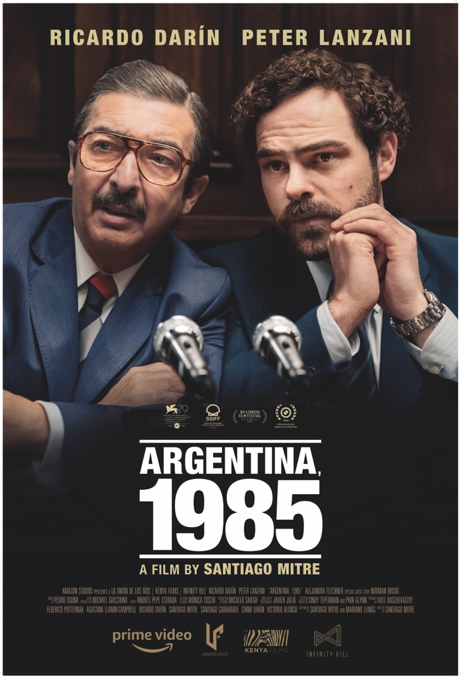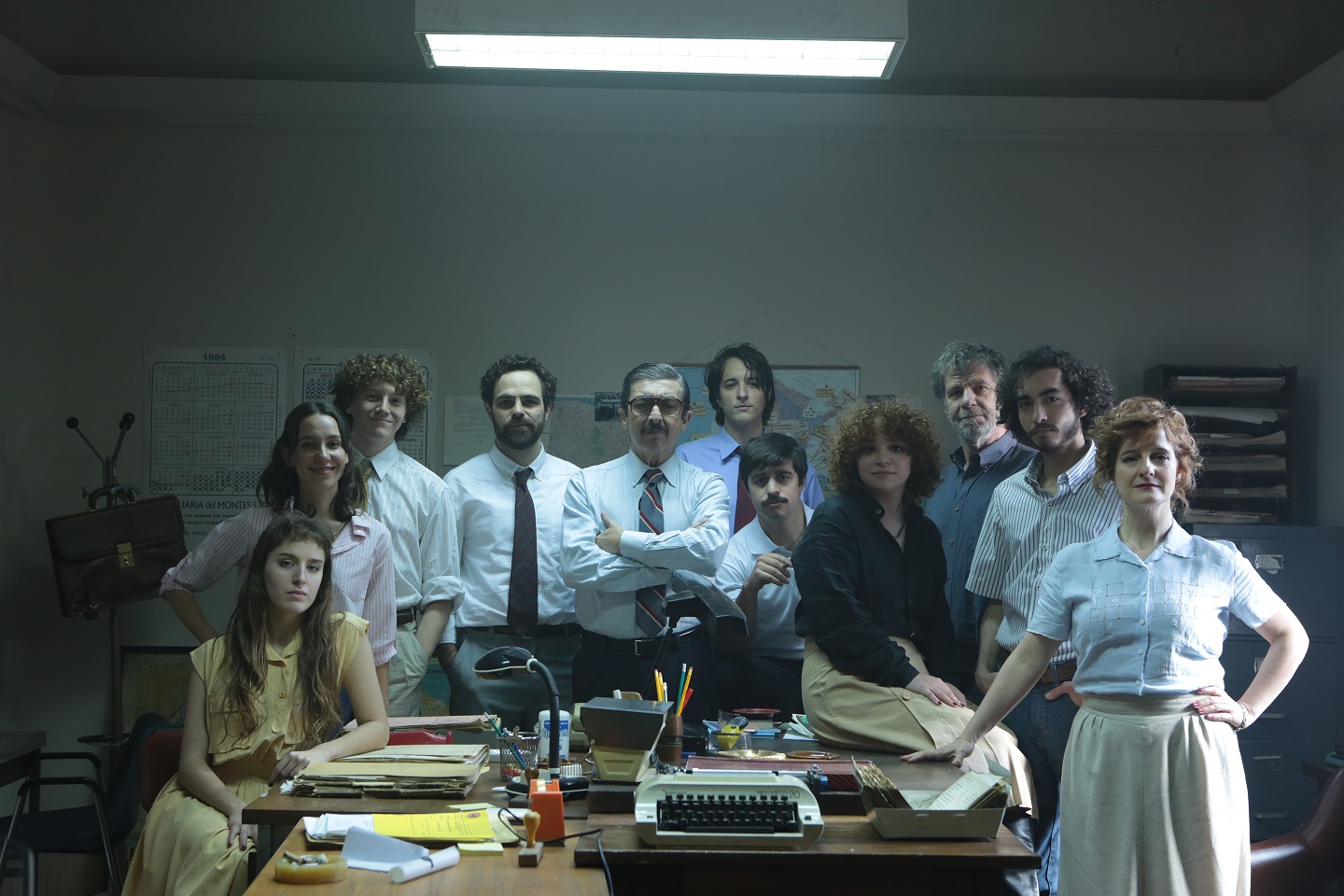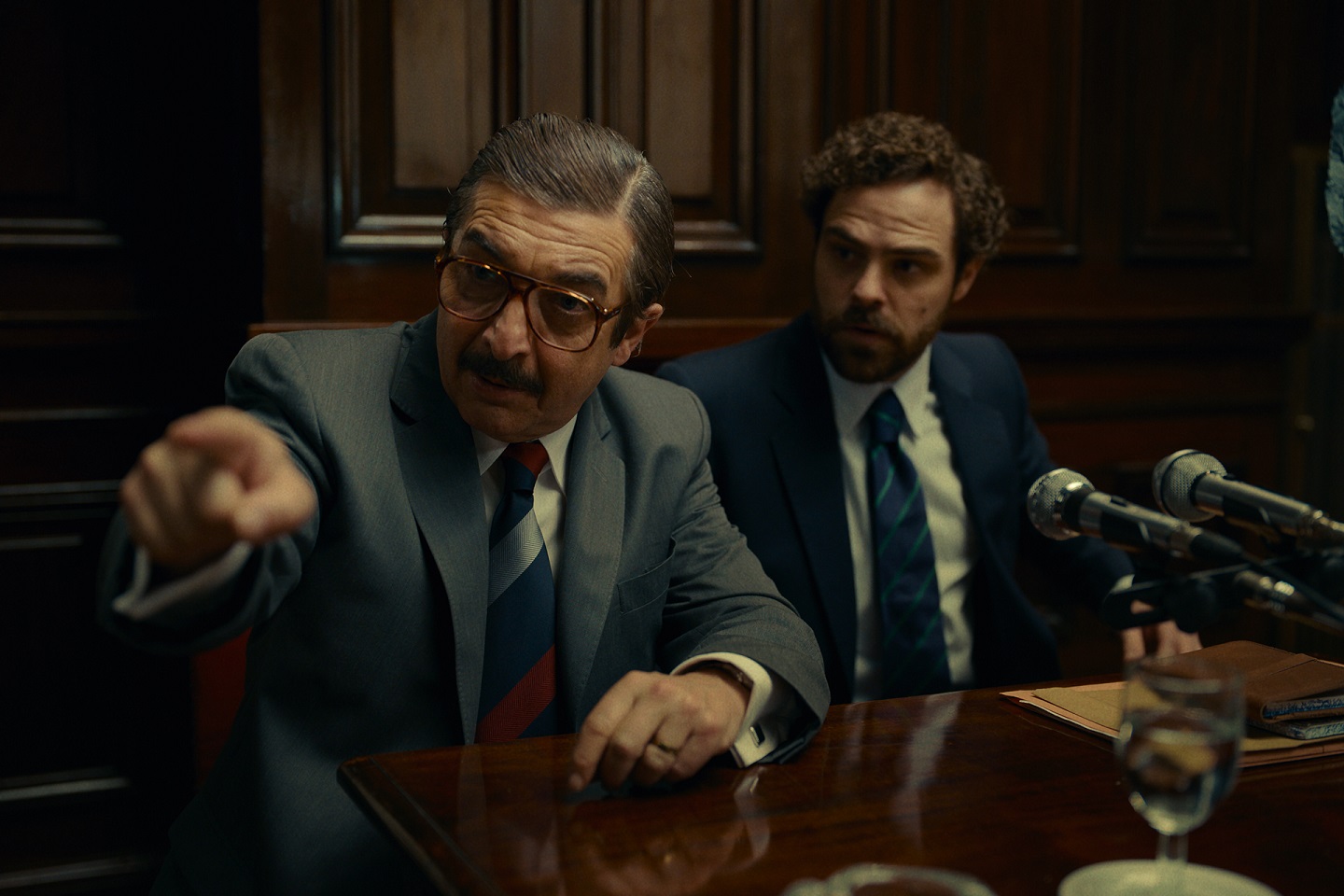Streaming: Argentina’s Oscar Submission ‘Argentina, 1985’
 Wednesday, November 16, 2022 at 6:35PM
Wednesday, November 16, 2022 at 6:35PM
 One of the benefits of screening selections for Best International Feature is not only to see different worldwide approaches to filmmaking but also to get to understand national histories. European entries, for instance, often engage with the Holocaust, while a finalist from a few years ago, Truth and Justice, was based on a highly influential book in Estonia known throughout that country. Argentina, 1985 , now streaming on Amazon Prime, confronts a more recent period in that nation’s history, documenting an unprecedented reckoning with the crimes of its military leaders in a trailblazing civil case.
One of the benefits of screening selections for Best International Feature is not only to see different worldwide approaches to filmmaking but also to get to understand national histories. European entries, for instance, often engage with the Holocaust, while a finalist from a few years ago, Truth and Justice, was based on a highly influential book in Estonia known throughout that country. Argentina, 1985 , now streaming on Amazon Prime, confronts a more recent period in that nation’s history, documenting an unprecedented reckoning with the crimes of its military leaders in a trailblazing civil case.
Ricardo Darín, a familiar face from Argentinian cinema and its recent nominees, The Secret in their Eyes and Wild Tales, stars as Julio César Strassera, the lead prosecutor in the Trial of the Juntas. It was an undesirable assignment given the extraordinary influence of the military dictatorship that had only recently been replaced by a new democratic government...
Working alongside Strassera is deputy prosecutor Luis Moreno Ocampo (Peter Lanzani), a far less seasoned but energetic lawyer with a fervent desire to see justice served. Together, they face an uphill battle to prove the complicity of those who still exert far too much influence over the people they brutalized and tortured during their reign.

There is a playful setup in this film, particularly as Ocampo interviews potential staffers to help them in their efforts. Most of them lack any sort of credentials and bring only their youth to the table, something that makes them accessible but hardly intimidating. Strassera goes through a long list of possibilities and laughs off every single one of them as being fascists, a legitimate assessment of their potential leanings rather than a broad insult meant to indicate his distaste for them. Their crack team of investigators doesn’t seem like they can accomplish much, but that’s part of the appeal to this underdog story.
From those lighthearted beginnings, this film takes a much darker turn as witnesses are found and slowly agree to speak up. Starting off with humor and unlikely odds makes the transition to serious and chilling testimonies all the more effective. It’s hard to deny the impact of the words uttered by those who realize they must speak out, including one woman who describes giving birth while restrained and blindfolded in the back of a car as she was being held prisoner. Seeing the emotionless looks on the faces of those on trial indicates a cold and callous attitude all too familiar among the powerful with no checks on their behavior.

This film’s release in the United States comes at a trepidatious and worrisome time when far-right rhetoric is picking up and many election deniers have just been democratically-installed. What an investigation into wrongdoing on the governmental level looks like has already become apparent in America, even if the crimes committed don’t come close to what was experienced in Argentina. This film looks at what it means to hold people to account for their actions, even if an unfortunately overwhelming majority doesn’t seem interested in dwelling on or even acknowledging past and present reality.
Argentina, 1985 is best compared to another South American Oscar nominee from a decade ago, No, which also dealt with a society contemplating reform and a shift from dictatorship. Both films employ montages and feel like character pieces, focused on the central figures in fights that are much more about the movements than their architects. Running 140 minutes, Argentina, 1985 at times feels arduous, but only because, even in the face of undeniable proof, Strassera’s job remains monumentally challenging. It’s a film that lets its events speak for themselves and enhances them in subtle and straightforward ways. As a testament to its national history, it feels like a likely nominee in this year’s Oscar race. B+
Argentina, 1985 is currently streaming on Prime Video.



Reader Comments (4)
I think this will get in. It's from a country they've rewarded before, tells an important, true political story and it does it in an entertaining Hollywood way.
I think this will get in. It's from a country they've rewarded before, tells an important, true political story and it does it in an entertaining Hollywood way.
I can't think of a better actor than Ricardo Darín. He should be in the conversation.
Agree on Darin. In a just cinema world, he'd be in the conversation for Best Actor.
The movie is quite sound, but Darin elevates it